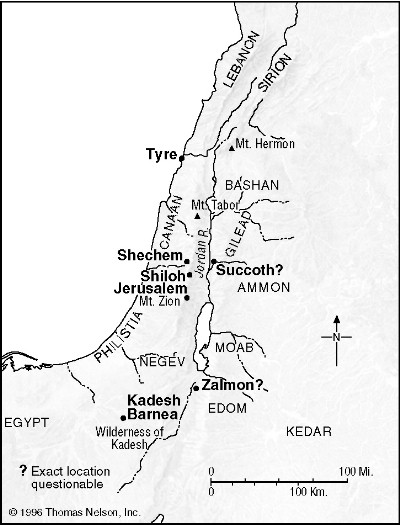Jeremiah 17.9 reminds us of what this psalm states. By nature, we are wicked. To the core of our heart, we are wicked. Our names could be placed at the beginning of this psalm. It is only because of God who is mentioned in verses 5-9 that we can have a clean heart, a new heart; that is only found in Jesus. Are you standing against the wicked (4) or are you walking beside them (Psalm 1)? Is your life lived partly for God and partly for you in this world? Are you living a life of syncretism?
Psalm 36
This psalm is clearly a psalm of contrasts much like Psalm 1. It contrasts the rebelliousness of the wicked man (1-4) with the righteousness of God (5-9) and concludes with a prayer of protection for the righteous (10-12). The superscription of “the servant of Jehovah” provides a similarity to Psalm 18. The subject matter reminds us of Psalm 14 and Psalm 53.
Verses 1-4-The style is rough in the Hebrew as David describes the life of the wicked man. The progression from disavowing God to practical atheism is brought on by the deceit of man and the teachings of deceitful mankind. These result in belief in self and blindness to moral issues where in the self becomes a god and there are no moral bounds. What is true for you may not be true for them; we call this moral relativism. When we examine the world, our world, the United States, we see this as having already occurred and Christians stand in its wake. This psalm is for us.
These verses show the attitude of those who deny God. They believe they will not be found out and if they are they will not be judged for it. Think of those the world celebrates, they commit crimes and believe they can walk off without being judged merely because of their name or position they hold. As an example, a recent President committed atrocities in the White House, was impeached, and then let go primarily because he was helping the economy.
The very first word in Hebrew (לַמְנַצֵּחַ) is not even translated in many versions. It means an oracle that is prophetic, coming from God, and it is associated with “the transgression” (נְאֻֽם־פֶּשַׁע). This would mean that God gave to David an insight into the very nature of the wicked, those in rebellion against God. And, that is the denial of the existence of the God who also reveals His very nature in verses 5-9. When describing those who base their righteousness on what they do, Paul quotes Psalm 36.1 in Romans 3.18. The person who walks away from God is described in Micah 2.1 as one who cannot sleep until he has devised a wrong and when he awakens he completes the thought with action. There will come a time when those who walk away from God will be incapable of doing anything of value in God’s sight (Jeremiah 4.22 and Romans 1.18-3.31). This is primarily because the wicked do not think that what they are doing is wrong. Abortion is an example of these verses being played out in the United States.
Verse four invites us to do the opposite of what the evil do. They do not reject evil. We need to actively reject the evil that the world, the devil, and we present to ourselves (1 John 2.15-17).
Verses 5-9-The style is lyrical when it comes to describe God (John 8.12 tells us this is speaking of Jesus). When it comes to knowing who God is, we need to rely on His revelation of Himself in His Word (Romans 11.33). Otherwise, we might mistake ourselves for Him. Part of the revealing God does becomes a revelation of our nature as well (as seen in the first four verses). The more aware we are of Him, who is light (John 1.4-5, 9), the greater we know our darkness (1 John 1.5-7). This is where repentance comes in (1 John 1.9). God blesses those who seek to know Him (9). He does not merely bless them with a place to go but with a life to live. Knowing Him goes far beyond what our imaginations can capture (Ephesians 3.20-21). It is not merely having a source of water for refreshment (Jeremiah 2.13), it is a fountain pouring forth. It is abundant life (John 10.10)
Verses 10-12-David’s prayer is for God to protect the righteous from the wicked. In God’s presence is protection (12). The wicked cannot stand before Him (see Psalm 18). David was given a revelation of the wicked, of God, and, here, a glimpse of the horror of judgment on the wicked (Proverbs 24.16). There will be a place, “there,” where the wicked will not stand (the Judgment Day).
Jeremiah 17.9 reminds us of what this psalm states. By nature, we are wicked. To the core of our heart, we are wicked. Our names could be placed at the beginning of this psalm. It is only because of God who is mentioned in verses 5-9 that we can have a clean heart, a new heart; that is only found in Jesus. Are you standing against the wicked (4) or are you walking beside them (Psalm 1)? Is your life lived partly for God and partly for you in this world? Are you living a life of syncretism?






